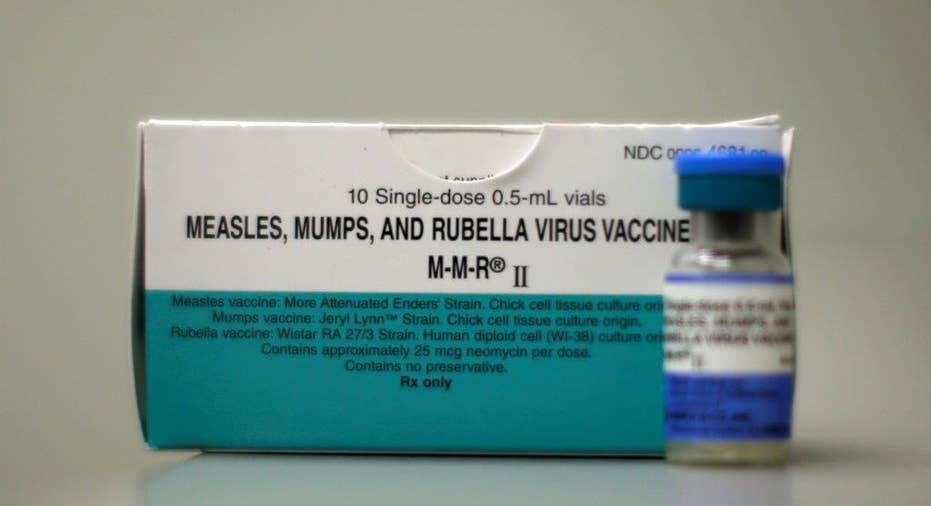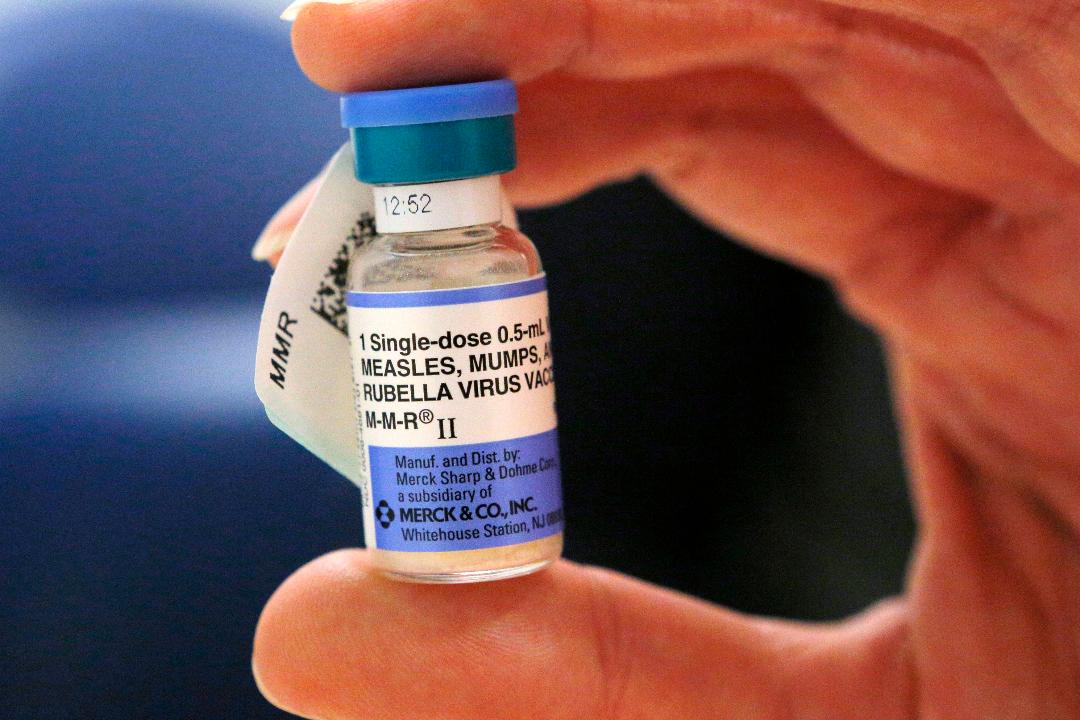Mumps Outbreak Tied to Vaccine Shortfalls

As an elevated number of mumps cases are being reported across the country since the start of 2017, some health officials and doctors say it may be time to consider adding a third vaccination dose to current immunization guidelines.
Since January, 1,000 cases of mumps have already been reported in more than 37 states, according to the Centers of Disease and Control Prevention (CDC). Most of the outbreaks are hitting college campuses such as Penn State University and Louisiana State University.
“[The vaccine] is excellent for the short term, but after 10 to 15 years, it begins to wane in some people. It doesn’t go away completely, but just allows them to get mumps ... if they are in a particular circumstance,” William Schaffner, MD, professor of preventive medicine at Vanderbilt University School of Medicine, tells FOX Business.
Mumps is a contagious disease caused by a virus that typically starts with a few days of fever, headache, muscle aches, tiredness and can cause painful swelling of the cheeks and neck. It can also lead to encephalitis, which in rare cases can lead to death, says the CDC.
The total number of reported cases has only topped 1,000 in 6 of the past 17 years. The record for that time period was in 2006, when more than 6,500 cases were reported, mostly affecting college-aged students living on college campuses in the Midwest, according to the CDC. Last year was the second highest in the post-vaccine era, with more than 5,311 mumps cases reported in 2016.
A CDC spokesperson tells FOX Business that while it is investigating many possible factors contributing to the increase of reported cases, it is looking into the possibility that the “protective effect of the vaccine decreases over time.”
“There hasn’t been any evidence to suggest that the MMR vaccine does not protect against circulating mumps strains. However, outbreaks have occurred in highly-vaccinated communities, particularly in close-contact settings, despite the protection afforded by mumps vaccination,” Ian Branam, a CDC press officer, tells FOX Business.
Current CDC guidelines recommend that children get two doses of the MMR-II (a live virus vaccine for Measles, Mumps and Rubella), one at 12 to 15 months of age and the second dose at 4 to 6 years of age.
MMR-II is the only licensed mumps vaccine in the U.S. and is manufactured by Merck (NYSE:MRK).
"Merck is confident that MMR-II, which has been in use since the 1970s, is an effective vaccine to help prevent measles, mumps and rubella. MMR-II continues to be recommended for routine administration to children by public health authorities around the world,” Pamela Eisele, a Merck spokesperson, tells FOX Business.
According to the CDC, MMR-II prevents most, but not all, cases of mumps and complications caused by the disease. It says two doses of the vaccine are 88% effective at protecting against mumps; one dose is 78% effective.
However, Paul Offit, MD and director of the Vaccine Education Center at The Children’s Hospital of Philadelphia, says a third dose of the vaccine may be needed in light of the current reported outbreaks, and may be a quicker solution than developing a new and stronger vaccine.
“Could you make a better mumps vaccine which has no side effects and has better protection? I think that you could, but it would probably be a two-decade long effort and it would mean a company like Merck, which is the sole manufacturer in the United States, will essentially be competing against themselves -- so I don’t see that happening. I think the more likely scenario is that you give out a third dose of the current vaccine at 11 or 13 years of age,” Offit tells FOX Business.
The CDC says it is already considering whether a third dose should be added to the current immunization guidelines.
“[The CDC’s Advisory Committee on Immunization Practices] will carefully examine mumps epidemiology and the factors that might have contributed to the increase of cases in 2016. [It] will use this information to help guide the discussion on how best to use vaccines to control mumps outbreaks, including whether or not a third dose or MMR vaccine would be an effective control measure in outbreak settings,” Branam says.
Before the U.S. mumps vaccination program started in 1967, about 186,000 cases were reported each year and thousands of children were hospitalized with complications, according to the CDC. Since the pre-vaccine era, it has seen a more than 99% decrease in mumps cases in the United States.




















